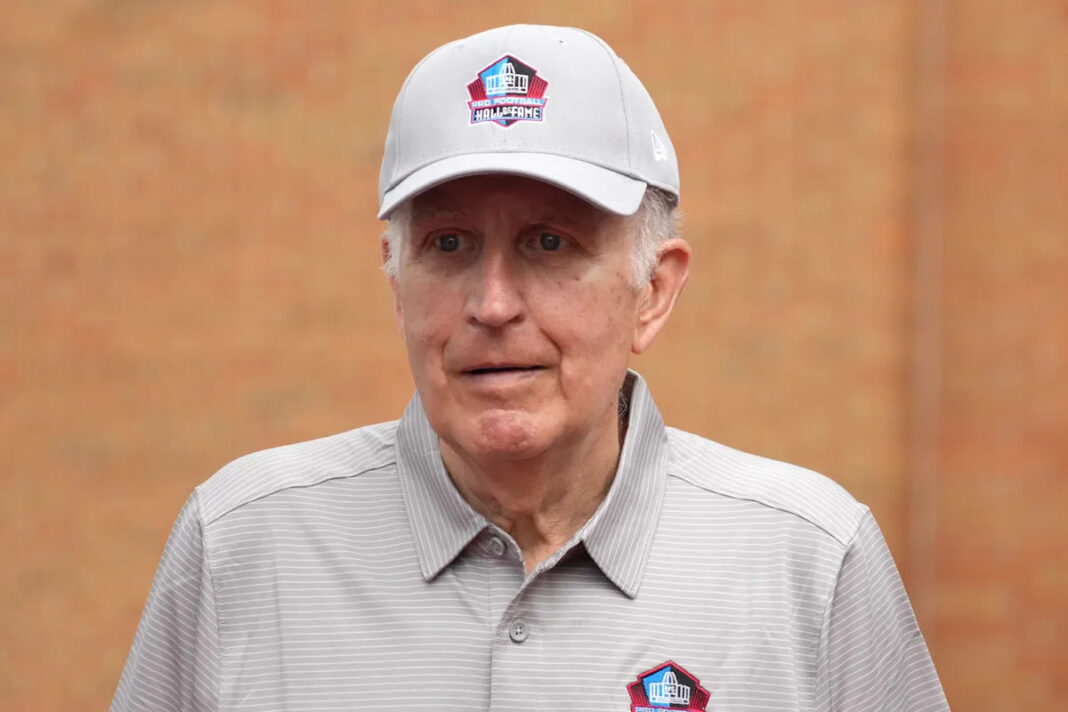Remembering Paul Tagliabue: A Legacy of Leadership in the NFL
Former NFL Commissioner Paul Tagliabue passed away on a somber Sunday in Chevy Chase, Maryland, at the age of 84. His family reported that heart failure, complicated by Parkinson’s disease diagnosed seven years prior, was the cause of his death. Tagliabue’s tenure in the NFL from 1989 to 2006 marked a transformative era for the league, filled with both remarkable achievements and significant challenges.
A Financial Powerhouse
Tagliabue’s leadership is often credited with propelling the NFL into new financial heights. When he took over from Pete Rozelle, the league was already a beloved American institution, but under Tagliabue’s guidance, it became a financial powerhouse. He skillfully navigated through various crises, including the postponement of games after the 9/11 terrorist attacks and the fallout from Hurricane Katrina. His adept handling of labor relations contributed to an era of stability, preventing work stoppages and maintaining franchise values that soared as revenue from media rights deals skyrocketed.
Expansion and Infrastructure
During Tagliabue’s era, the NFL expanded its footprint significantly. The establishment of the Carolina Panthers and Jacksonville Jaguars in 1995 marked a new chapter of growth, including the return of football to Cleveland with the reborn Browns in 1999 and Houston with the Texans in 2002. His tenure saw the construction of 20 new stadiums, initiating a facilities arms race that captivated cities and ultimately enhanced team revenues.
The emphasis on modern stadiums not only improved the fan experience but also established a lucrative venue for hosting events beyond regular-season games, contributing to the financial boom.
Navigating the Concussion Crisis
While Tagliabue’s achievements are undeniable, his legacy is also intertwined with the league’s ongoing concussion crisis. His response to player safety and head injuries drew considerable scrutiny. In 2017, he expressed remorse for past comments, particularly a 1994 statement that downplayed the seriousness of concussions in the sport. Tagliabue admitted to USA TODAY Sports in 2021, “There were some things that we did that probably should have been done much quicker.” This acknowledgment reflects a growing awareness of the long-term consequences of head injuries in football, a subject that remains sensitive and controversial today.
Leadership and Philosophy
Paul Tagliabue’s leadership was characterized by a unique blend of vision and humility. His approach to governance was heavily influenced by his predecessor, Pete Rozelle, and he carried forward the belief that decision-making should prioritize the greater good of the league. Tagliabue believed in fostering unity among the teams, ensuring that the NFL thrived collectively rather than as individual entities. Roger Goodell, who succeeded him, often speaks highly of Tagliabue’s integrity and strategic acumen.
Hall of Fame Recognition
In 2020, Tagliabue was honored with induction into the Pro Football Hall of Fame as part of the centennial class. This acknowledgment highlighted not only his contributions to the game but also the profound impact he had on shaping the league into what it is today.
Reflection Among Peers
Following Tagliabue’s passing, Roger Goodell released a heartfelt statement expressing sorrow over the loss of a leader whose vision put the NFL on a trajectory of unparalleled success. Goodell recognized Tagliabue as “the ultimate steward of the game,” someone who was “tall in stature, humble in presence, and decisive in loyalty.” His remarks reveal the deep respect Tagliabue earned from colleagues and players alike—not just for what he accomplished, but for how he carried himself through challenges.
The Unfinished Legacy
As discussions around player safety continue to evolve, Tagliabue’s influence in shaping policy and practices will remain a significant part of NFL history. His ability to steer the league through turbulent times while fostering economic growth sets a benchmark for future leaders in the sport. In many ways, the path forward for the NFL—particularly concerning player health and safety—will reflect the foundation laid during his time as commissioner.



